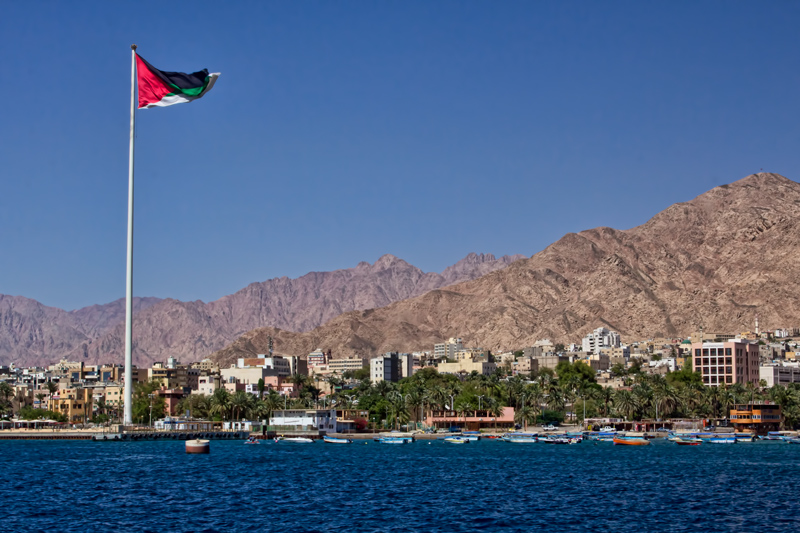This week, I finished reading
The Israel Lobby and U.S. Foreign Policy, the (in)famous 2006 book by Professors John Mearsheimer and Stephen Walt, which claims that a good deal of the problems in America's Middle East policy stem from the outsize influence of pro-Israel groups and individuals in our politics.
First, the good points:
1) Despite what you may have heard, this book is decidedly
not anti-Semitic. The authors are fully aware of the cultural context in which they write, and strive studiously to avoid any semblance of prejudice against Jews as a group.
2) This book is an excellent source of information. I would recommend this book as a worthwhile corrective to just about everything you hear about Israel from mainstream American politicians these days. I would especially recommend the book's eleventh chapter,
The Lobby and the Second Lebanon War, which, to the objective reader, leaves the myth of Israel as a moral civilization fighting barbarian hordes in ruins
.
In fact, I kind of wish they had simply left it at that.
But instead of simply arguing that the U.S.'s Middle East policy is damaging and wrong-headed, and should be changed, they try to explain
why U.S. Middle East policy is damaging and wrong-headed. And that, if I may be so bold, is where they either fall into tautology, or fail entirely.
Walt and Mearsheimer are foreign policy realists. In their
worldview, for the most part, nations do not have ideals - they have
interests. They are not motivated by ideology, religion, moral values,
or anything else.
How then to explain why the United States does things that are clearly (from W & M's perspective) against our national interest - like support Israel unconditionally, invade Iraq, adopt a confrontational posture towards Iran and Syria, etc?
W & M contend that the only explanation is the influence of the Israel Lobby.
And what is the Israel Lobby?
"We use 'Israel lobby' as a convenient shorthand term for the loose coalition of individuals and organizations that actively work to shape U.S. foreign policy in a pro-Israel direction." (p. 112 - a little late into the book to be defining it? I think so).
In other words - every person who is pro-Israel and in a position to shape U.S. foreign policy, including policymakers, academics, journalists
and lobbyists, is part of the Israel Lobby.
It is only with this expansive definition that the authors can make extravagant claims like, "If Israel and the lobby were not pressing the case, there would be little serious discussion inside or outside the Beltway about attacking Iran," (p. 302) or "absent the lobby's influence, there almost certainly would not have been a war" with Saddam Hussein (p. 17).
Fair enough, I suppose. One might add that, absent the infernal influence of a loose coalition I shall refer to as "the anti-communism lobby," there never would have been a Cold War. But statements like these are somewhat lacking in explanatory power.
This is a shame, because the actual Israel Lobby - organizations like AIPAC and Christians United For Israel - does wield outsize influence in the American political system, to the point where every serious contender for the presidency, no matter how liberal or conservative, must declare their fervent, unyielding, unconditional, personal, emotive, support for the Jewish state - over and over and over again.
As Jon Stewart has put it, "The parameters for debate in the United States about Israel range all
the way from ‘I unequivocally support them and might bomb Iran’ to ‘I
unequivocally support them and will definitely bomb Iran!’"
The Real Israel Lobby, as W & M do a convincing job of detailing, operate completely in the open, and use campaign fundraising, organizing, and good old-fashioned lobbying to dominate government discourse about the Jewish state.
If W & M had restricted their definition of the Israel Lobby to
actual lobbying organizations, they would have had a much more
compelling argument.
But these organizations cannot be blamed for the American-Israeli alliance. Nor the Iraq War. Nor our current confrontations with Syria and Iran.
So, in their quest to hang the catastrophe of the Iraq War around the neck of "the Israel Lobby," they define the Israel Lobby so broadly that it is an almost meaningless term.
The reality is that the U.S.'s unconditional support for Israel, its war in Iraq, and its current crusade against Syria and the Islamic Republic of Iran, are all driven by what our policymakers perceive as our rational interests.
W & M make a compelling case that our policymakers have
misperceived our interests. But it is not the only case that can be made.
And in fact, the case they make in Chapter 9 - "Taking Aim at Syria" - has been proven over the past year to be hopelessly, utterly wrong. Instead of a rational state ready to make peace with Israel and the United States the minute the Israel Lobby lifted its foot off our neck, Syria has revealed itself as a rotted-out shell of a state. The Baathist regime, we have learned, could not, in fact, be negotiated with, because the Baathist regime had sown the seeds of its own destruction for forty years, and was only four years away from harvest when
The Israel Lobby was published. Today, the regime's only interest is its own survival, and the means by which it is seeking it are unacceptable to any strain of thought in American or Israeli foreign policy circles. The Syrian Revolution is a crucial object lesson on the limits of foreign policy realism.
As for our support for Israel, the rational interest there is explained by Gershom Gorenberg in his book
The Accidental Empire, where he recounts a memo written by an adviser to President Johnson, McGeorge Bundy:
"His lesson from the [1967] war was that 'if Israel were in imminent danger of defeat...the U.S. would confront extraordinarily painful and unattractive choices.' To avoid needing to go to war on Israel's behalf, America had to ensure Israel's ability to defend itself. So the administration could not easily withhold arms as a means of pressure. The United States did need to maintain its ties with moderate Arab regimes, and did favor Israeli withdrawal - but the result had to be peace." (p. 83)
W & M dedicate one chapter to why our support for Israel is not in our interests, and one to why our support for Israel cannot be explained by moral concern. The so-called "Bundy Doctrine" demonstrates why segmenting our rational interests and our moral concerns that way is such a mistake: our moral concerns dictate that we not allow Israel to be destroyed, and our rational interests dictate that we must maintain good relations with Arab regimes that (in 1967 anyway) wanted to destroy Israel. The best way to protect Israel without fighting the Arabs? Shower the Israelis with military aid.
While he doesn't cite any policy memos to support his case,
David Samuels offers an alternate, but similar take on what the U.S. gets out of its support for Israel - by being Israel's closest ally, the U.S. is able to present itself to the Arabs as the only power that can keep Israel in line.
If U.S. policymakers followed W & M's advice and reduced our support for Israel while demanding they make more concessions for peace, would the goodwill we got in return from the Arabs be as valuable as the influence we currently have with the Arabs thanks to our alliance with Israel? That's a question good realists can disagree about. One need not invoke the Lobby to explain why our current leaders don't agree with W & M.
As for the Iraq War, W & M themselves admit that one of the U.S.'s three key interests in the Middle East is keeping the Persian/Arab Gulf Region stable. Saddam Hussein was decidedly unstable. We never intended to allow him to stay in power. In the wake of 9/11 and our quick victories in Kosovo and Afghanistan, the war was a foregone conclusion. Attributing it to the influence of a lobby is absurd.
Unless, of course, that Lobby includes every policymaker who doesn't agree with W & M.
In examining
arguments in favor of U.S. support for Israel, W & M give only two
paragraphs' shrift to the idea that animates the entire Christian
Zionist movement: that God has given the land of Palestine to the Jews,
forever. They refute it thusly:
"Church and state are
separate in the United States, and the religious opinions of any group
are not supposed to determine the country's foreign policy." (p. 108)
Au contraire, professors - nothing
but religious opinions determine our country's foreign policy. And I suggest that your own religion of realism and rational interest afflicts our foreign policy to a greater degree than Zionism or Christian Zionism ever could.





















